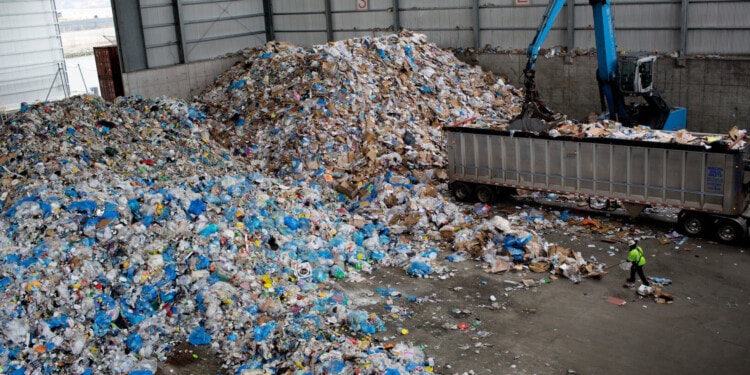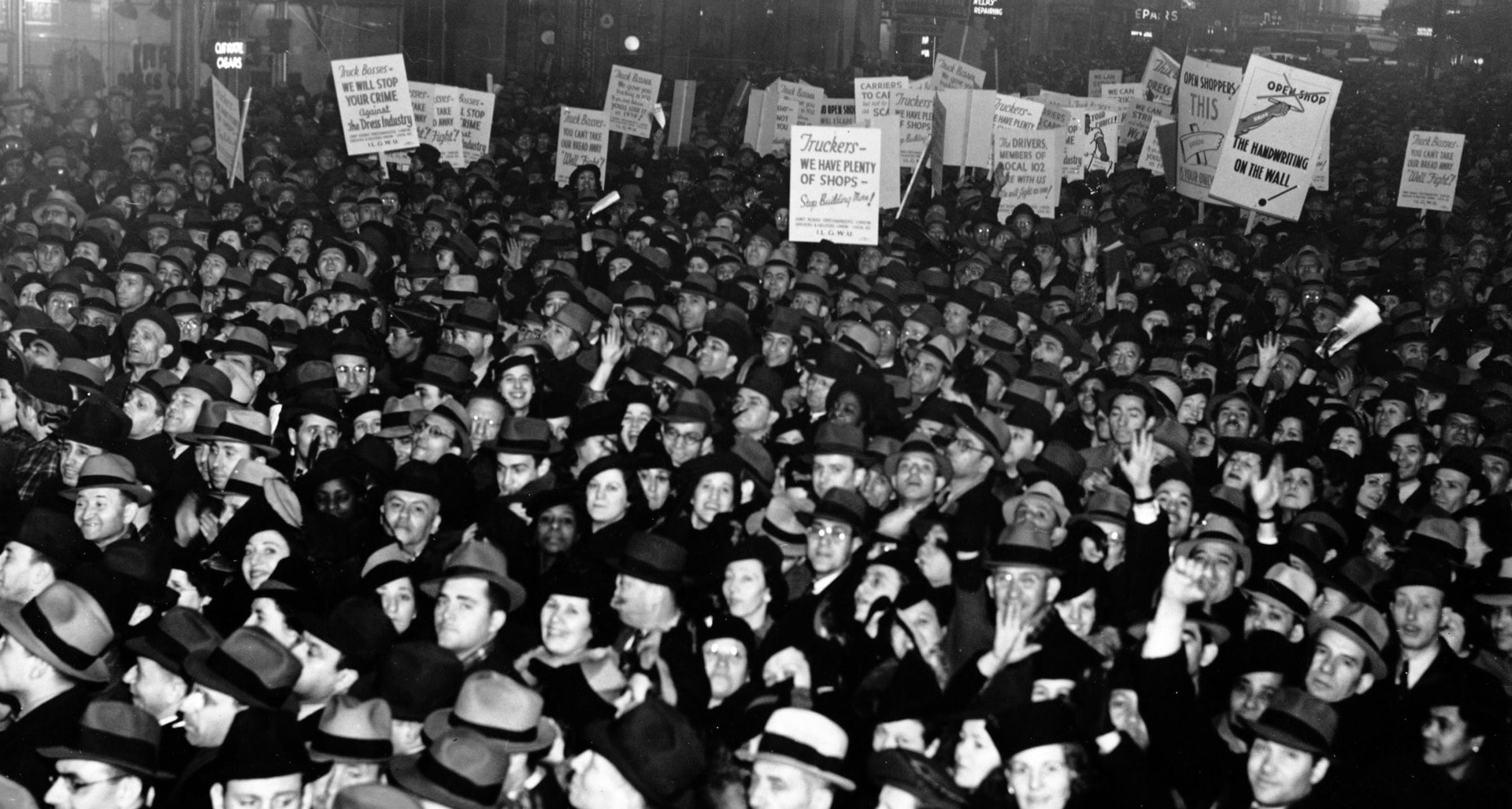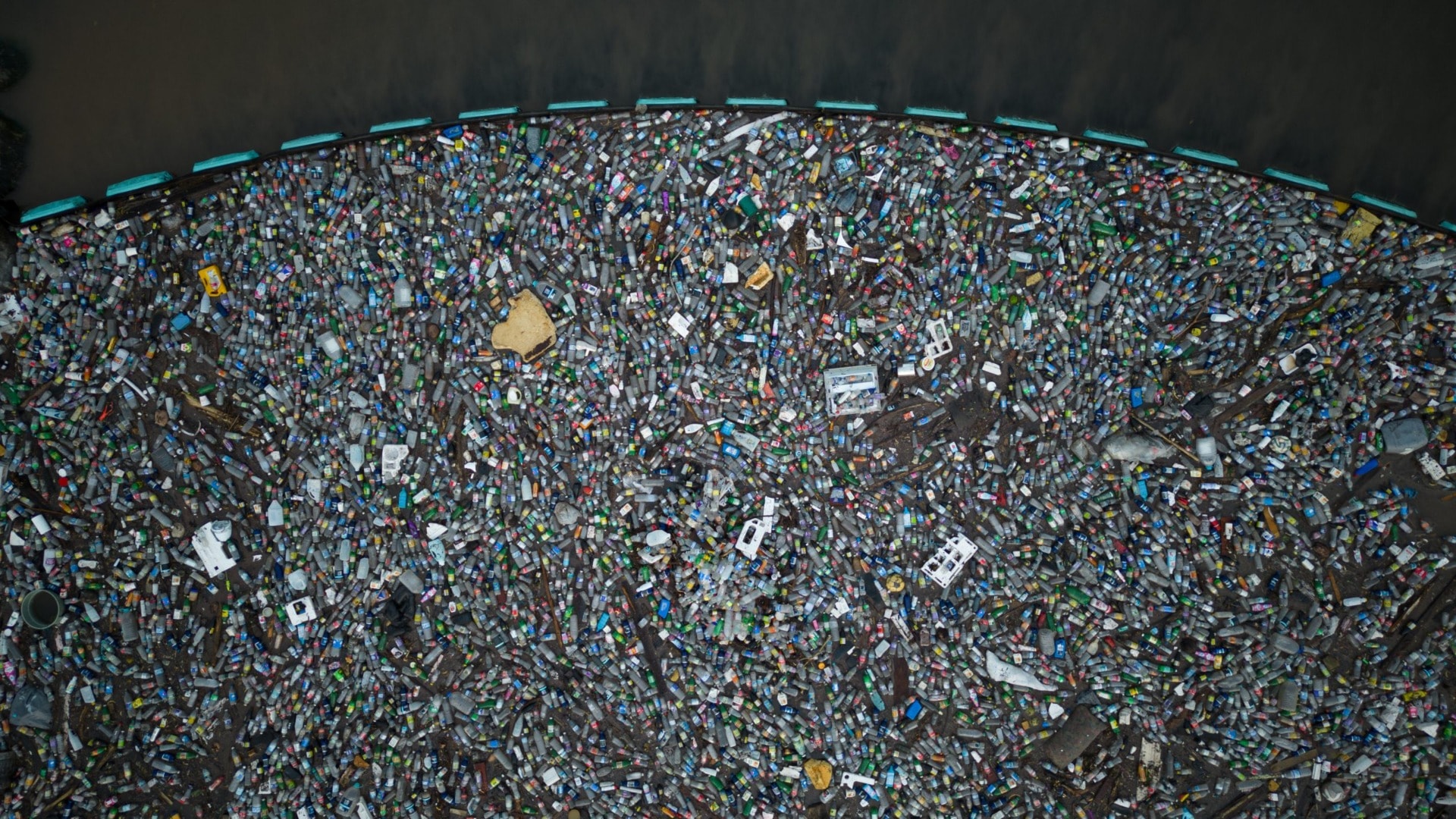When we were young, they taught us to Reduce, Reuse, and Recycle, a powerful alliteration that, in our underdeveloped idealist minds, surely could solve our world’s excessive trash problem. As we grew older, we took note of the careless people who refused this simple concept and admired those who, like ourselves, lived by these principles: separating the paper from the plastic, rinsing out the glass jars, and breaking down the bulky cardboard boxes. How can we overcome recycler’s guilt and minimize our carbon footprints?
The 2022 Reality
Today, we find ourselves living in a giant city with over 6 million residents, our trash being collected nightly by hundreds of public waste removal employees, and wishfully clinging on to the hope that our plastic blueberry container or oat milk carton will make it to its willed destination at the recycling center.
But sooner or later, we must face the discouraging reality that proper recycling procedures are rarely carried out, especially in major cities where thousands of people’s actions influence the disposal of recyclables. In New York City, for example, it was reported by The New York Times in 2020 that only 18% of trash from homes and 25% of trash from businesses is recycled. According to the city’s Sanitation Department, if everything recyclable was sorted and recycled, nearly 68% of residential trash and 75% of commercial trash could be kept out of landfills.
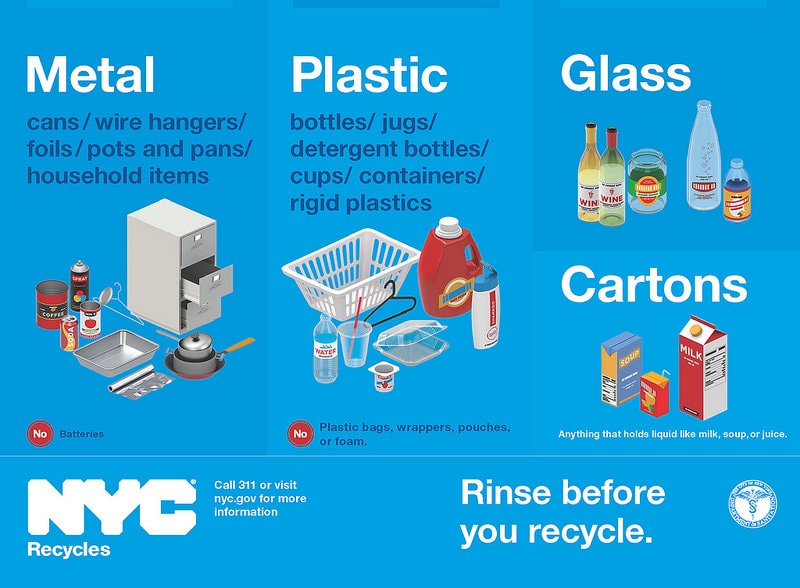
So, is it all our fault? Not exactly. Although many of us lack the patience and discipline to recycle, this massive problem stems from systems much greater than an individual’s willpower. Many tenants of New York residential buildings report a lack of access to recycling bins. How could people be expected to recycle when they don’t have a place to do so? Similarly frustrating situations occur in business buildings where employees have allegedly witnessed sanitation workers dumping the contents of recycling bins into trash bins. Moreover, if recyclables do make it to the recycling center, they’re carefully examined and anything that is not properly rinsed or broken down is subject to be thrown away, and potentially risking the recyclability of the items around it as well.
An Eco-Friendly Lifestyle Without the Third R
As faith in the city’s recycling system diminishes, concerned residents are making small lifestyle adjustments to reduce their landfill contribution. Even the smallest efforts can be effective in minimizing your trash production.
Consider reusing glass jars. Rooting plants can live happily on a windowsill in an ex-hot fudge container. Or use the jar for storage, holding makeup brushes, pencils, or decorative beads to add a pop of color. Simply use the jar for drinking or save the lid to store your overnight oats. Before sending anything to the landfill, think about how it may be reused or repurposed for a second life.
Plastic bags take over 1,000 years to decompose and even then, they do not break down completely. Instead, they become microplastics that continue to pollute the environment. Avoid using plastic at all costs. Refuse the use of plastic grocery bags by bringing your own. But don’t forget a separate bag for your produce!
The Impakter Eco Marketplace is partnered with Andrea Bury, an accessories manufacturer that recycles leftover fabric to create new pieces. The brand’s Upcycled Cocktail Bag in 14 luxurious colors that could be perfect to carry your loose apples and oranges. Purchasing high quality reusables is the easiest way to keep recycler’s guilt at bay when there is scarcity in resources to recycle.
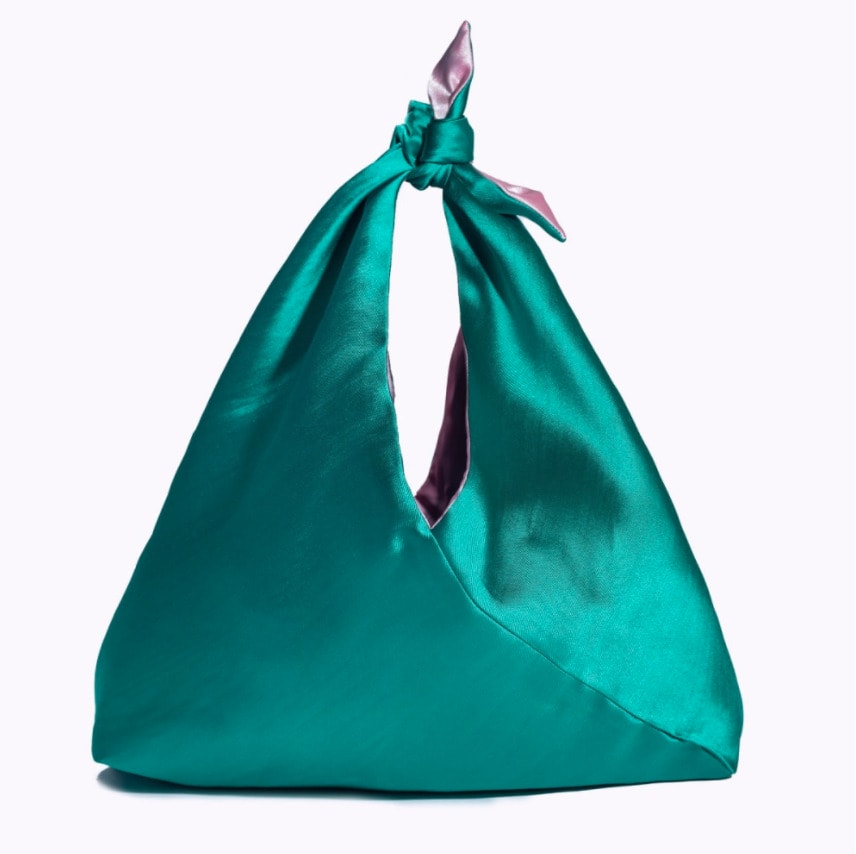
Store refrigerated food in reusable zip lock bags instead of plastic baggies which also never entirely decompose. JoieShop offers a set of silicone baggies that are freezer safe and easy to hand wash. This product allows for the same airtight seal and contained convenience as plastic bags but eradicates the waste.

Our Efforts Make a Difference
The flaws of worldwide recycling systems will not be solved overnight like we thought they could as kids. Rather than dwelling on recycler’s guilt, it is best to come up with creative alternatives to eliminate our need for recycling bins all together. Nevertheless, it’s still our responsibility as human beings to Reduce, Reuse, and Recycle to our greatest ability.
Editor’s Note: The opinions expressed here by Impakter.com columnists are their own, not those of Impakter.com. — In the Featured Photo: NYC Recycling Center. Featured Photo Credit: The New York Times 2,048 × 1,365.


